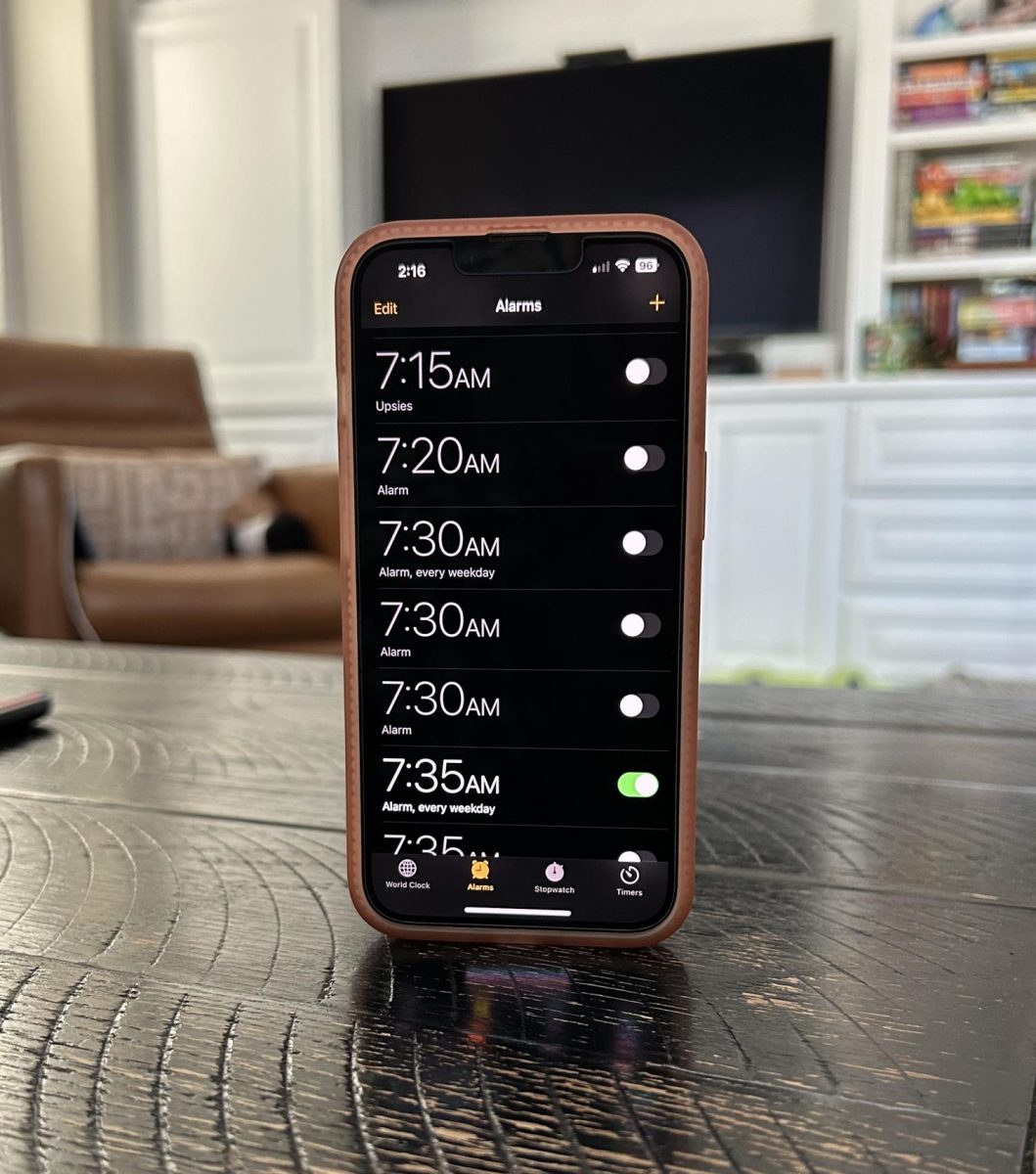For most students, the first sound they hear in the morning is the wake-up call of their alarms. Often, it’s tempting to hit snooze and roll over to grab an extra ten minutes in bed.
“I try not to snooze my alarm, but sometimes I want the extra sleep,” said Pari Jain (‘25).
However, research has shown that snoozing your alarm could actually make you feel more tired and groggy. This is because the time spent ‘snoozing’ could be equated to restless sleep, instead of entering a waking cycle. The 5-10 minutes of fragmented sleep increase grogginess as you finally begin to start your day.
“When you are waking up, you’re coming out of deep sleep–and then you snooze your alarm. You’re kind of falling in and out of consciousness and deep sleep, and it’s not very restful, so you’re not getting the benefits of sleeping,” said Amador AP Psychology teacher Robert Palmer.
But what are the effects of actually waking up with your alarm? To test this, I set myself the challenge of waking up with my alarm for five days–Monday through Friday.
Like any life changes, obvious improvement isn’t visible overnight. My morning alarm at 6:30 a.m. was annoying and for the first three days (Monday through Wednesday morning), I felt just about as groggy when I woke up as when I snoozed my alarm, like I wasn’t getting enough sleep.
Monday
A typical day for me looks like this: wake up at 6:30, leave for school at 8 a.m., go to swim practice at 4 p.m., end practice at 6 p.m., get home by around 7 p.m., and start homework at around 7:30. On Monday, I was not very excited about getting up, but after I had my coffee, I was grateful for the extra time I had in the morning. I found myself feeling a little more alert than I usually did in the early mornings.
Having a productive morning set the tone for the rest of my day. After practice, I felt more energized than I usually do and managed to finish all of my homework. However, I ended up going to bed earlier, putting my phone down at 10 p.m. and falling asleep by 11 p.m..
This was something I fell into a habit of doing. It didn’t quite meet the amount of required hours recommended for teens, but having a schedule where I got at least seven and half hours of sleep helped regularize my sleeping habits.
Tuesday, Wednesday, Thursday, and Friday
Tuesday through Friday felt very similar to Monday; due to better sleep, I felt as though I had more energy. During swim practice, I felt like I was performing better. In the morning, instead of snoozing my alarm, I found I had extra time to catch up on homework.
With five days of not snoozing my alarm under my belt, I can safely say that waking up with your alarm might make you feel marginally more awake in the morning, but even more important is sleeping at a proper time. If you routinely wake up at 6:30 every morning without snoozing, but go to bed at 1 a.m., you’re not going to feel very energized upon waking up.
Conclusions
For me, the biggest surprise was the week after my experiment concluded–when I found that I was naturally waking up with my alarm and not feeling an inclination to snooze. I’d managed to set a habit.
After I established a habit, I felt a lot more energized and excited to start my day each morning. Snoozing your alarm once in a while probably won’t hurt that much if you feel like catching a few extra z’s, but the whole point of having a set wakeup time and bedtime is about creating a schedule for yourself.
If you’re trying to stop snoozing your alarm every morning, it’s important to consider what time you’re actually going to want to get out of bed at. Don’t set your alarm fifteen minutes early and then snooze. Instead, set your alarm for when you actually want to get up,
“You might think, I’ve got fifteen more minutes of sleep. But if you were going to get out of bed then, then it would have just been better to set your alarm for then and get that quality deep restorative sleep that’s necessary,” said Palmer.











